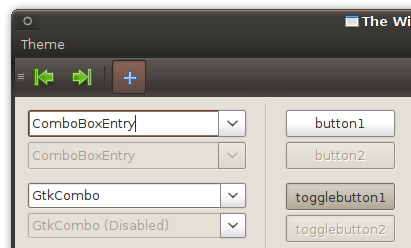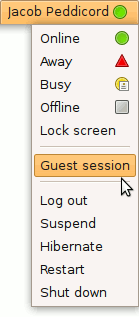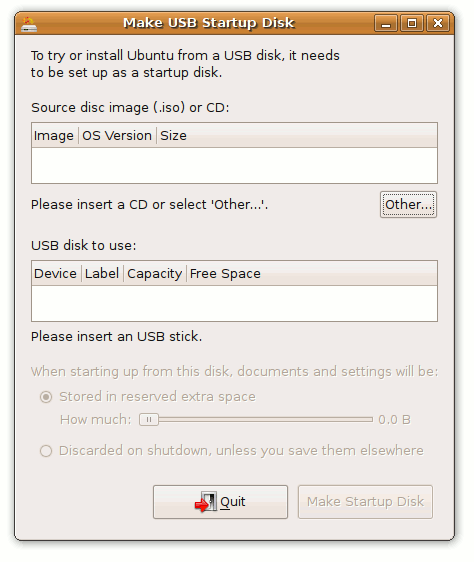Another six months, another Ubuntu release. This time around the table we have the Intrepid Ibex; 8.10. Not quite a ground-breaking release, but rather the framework for one. Why do I say that? Because there isn't much new immediately visible to the user. Let's take a look.
Right off the bat, most users will notice that the theme hasn't really changed a whole lot from 8.04. The reasoning to this I will leave for the reader to figure out. But don't leave disappointed, some of the new looks are available as an additional package. (Personally, I'm a fan of the Dust theme.)

The most noticeable changes are in the panel and its applets. First off, NetworkManager is now at version 0.7. This release brings more wireless options, built-in VPN support, DSL and static configurations, and even CDMA/GSM support for browsing on the go. At this point, you should never have to edit your network manually.
Another change was the removal of the logout button on the top-right of the panel layout. Instead, the user switching applet is placed there. This menu does it all: shutdown, restart, and other system actions are on the applet, but there is also a new "Guest session" option. Clicking on this locks your current session and opens a new one in a locked-down environment. If at any time someone wants to use your laptop or desktop, you can now open this guest session and not worry about them trying to access your files or destroying anything.
If you have Pidgin or GNOME's Empathy running, the user switching menu will also allow you to change your status with only a flick of the mouse.

Also included is GNOME 2.24 and the new features that come with it, such as Nautilus' tabs and drive utilities, but I won't iterate all of the changes here. Instead, check out the GNOME release notes.
Almost at the last minute, two new utilities were added to the array of administration applications. The first is "Cruft Remover," which makes an attempt at removing unused packages. However, it does also try to remove packages not installed from a repository, such as VirtualBox.
The next application is interesting: you can create a bootable USB startup disk. I haven't had the chance to try this feature out myself, but it seems straightforward: Insert a stock Ubuntu 8.10 disc and a USB flash drive or external HDD, and click. There is even an option to save your documents and settings back to the drive when you want to shut down, providing a nice "Ubuntu on the go" experience.

A less noticeable, yet highly useful "feature" is Xorg 7.4. This brings hotpluggable devices (I could plug in my Wacom tablet and not have to restart or install anything) and supposedly better stability. I would personally debate the stability due to some 3D problems, but that relies more on my graphics chipset and its drivers than X. But, as I said, this was a "framework" release. This version of X lays the groundwork for what will probably be known as DRI2 (aka wow-I-can-play-a-game-with-compiz-on). Those of you with ATI and Intel graphics chipsets will absolutely love this, however it won't be available for quite a while.
The rest of the features aren't major, but do make a system administrator's job a little easier. An encrypted private directory is available to store your private files, but it must be set up first. New versions of Samba, LDAP, the "uncomplicated firewall," and PAM are available to ease the process of connecting to other computers.
The new installer, however, does make the experience easier during partitioning, giving a nice visual image of your drives and changes before they are applied, plus other minor tweaks.
My verdict? If you're happy with Hardy, don't upgrade. If you want to try new things, give Intrepid a whirl. The usual slew of new packages is always an enticing reason to upgrade, but if you would rather stay stable, you aren't required to. The real action looks as if it will really start with Jaunty; what will be 9.04. See you in six months!